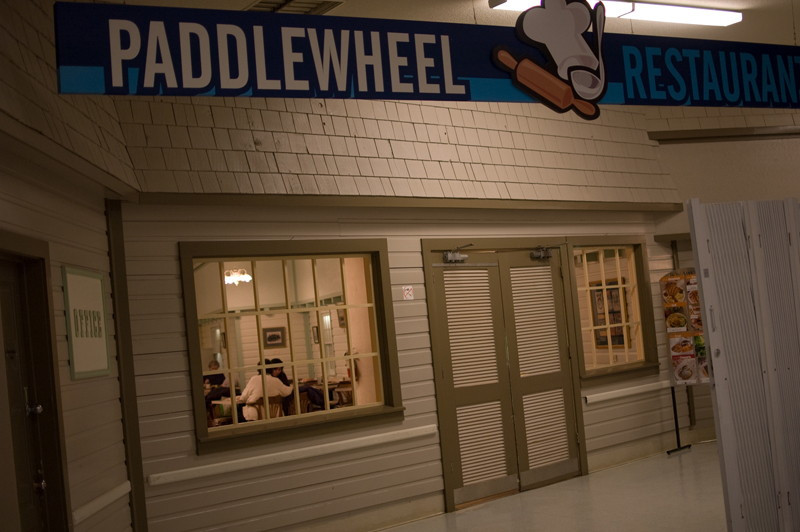Nostalgia doesn’t pay the bills
Mourn not the Paddlewheel
“You must be upset about the Paddlewheel closing, eh?” a reader of my blog asked me after it was announced the landmark cafeteria on the sixth floor of the Hudson’s Bay Company Building would close for renovations and be rebranded as a modish chain café.
Days later, the owners stated they would keep the Paddlewheel brand after renovations took place.
Since I have an obsession for local urban history and an eager appreciation for discovering vestiges of long-lost eras, this reader was reasonable to assume that I would be lining up for one last meal at the Paddlewheel.
I don’t plan on it, actually. To be honest, I think I have only visited the place a total of two times in my life.
When longtime commercial institutions in downtown Winnipeg disappear, much of the public dialogue is dominated by guilt-tinged nostalgia.
In the case of the Paddlewheel, there was a heightened level of melodrama: with the renovations, the city would lose a part of its soul, and downtown would become just a “plastic money making machine.”
Never mind that few Winnipeggers have set foot in the Paddlewheel since the 1980s, or that after 60 years of decline, the downtown could stand to make a little money.
Of course, there have been a number of people that do continue to visit the Paddlewheel.
Chief among them are the thinning ranks of “Bay Ladies,” those rare creatures who anachronistically believe downtown is a civil and humane enough place to change out of their pajamas for.
Faithfully, they filter into the store and make their way up to the sixth floor to meet with their friends over coffee and Jell-O cubes, just as they did in 1991, 1971 and 1951.
There is also a small but growing minority of young culture hunters among the restaurant’s clientele. Most have no prior connection to the Bay and the Paddlewheel; their childhood memories are of the Woolco in Windsor Park or the Steinbach McDonald’s.
Continually hunting out quirky, old and undiscovered institutions that are distinctly and honestly Winnipeg, the Paddlewheel has become a favourite because it is a weird place, and its aging Bay Lady set is charming.
It was due to the long-term decline of downtown Winnipeg that the strangeness of the Paddlewheel and its increasingly senile patrons are even around for the curious of 2011 to enjoy.
Located at the same intersection as the Winnipeg Art Gallery, a major office building and a growing (physically, at least) University of Winnipeg, the Bay should be doing better than it has been as a neglected and emptying department store.
In all honesty, the Paddlewheel closing down permanently was the next logical step.
Thankfully, it is not closing down, but simply changing. With owners that appear to actually be investing in the Bay, a store that even a year ago seemed not long for this earth, any upgrade should be welcomed.
Decline in a building or district’s economic position is not a bad thing (as disappointing as it can be), provided the framework and dynamism that makes cities work in cycles of decline and rebirth remain.
Buildings constructed as branch banks or exclusive retail in one decade can make wonderful art galleries or thrift stores in another.
What were once fancy eateries can also work as dusty, odd cafeterias.
But a place cannot exist forever just to validate the originality of hipsters, or to symbolize lost youth for the aged. Without investments over time, a district surviving on fumes will run out of gas.
For the culture hunters likely to be put off by the new Paddlewheel’s contemporary shininess, there is no shortage of other strangely wonderful little establishments to be found. The Alexis Grill around the corner from the Bay on Kennedy Street is one nearby example.
It may be hard to say goodbye to the old place, but just as cities must conserve the framework within which life can occur, there is no life where everything remains static.
Robert Galston is a University of Winnipeg student who blogs about urban issues at http://riseandsprawl.tumblr.com.
Published in Volume 65, Number 20 of The Uniter (February 24, 2011)







